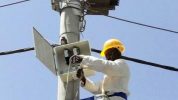The African Development Bank (AfDB) has approved $324 million in loan support to two renewable energy projects in Morocco and Côte d’Ivoire.
In line with the New Deal on Energy for Africa, the projects are expected to significantly increase power supplies and keep economic growth track, according to AfDB.
Scaling up investments in energy, is the African Development Bank Group’s top High 5 priority, in a continent where more than 600 million people do not have access to electricity. The New Deal on Energy for Africa is a partnership-driven effort with the aspirational goal of achieving universal access to energy in Africa by 2025.
For Morocco, the bank’s commitment of $265 million will help develop two solar power plants (NOORM I and NOORM II) at a total cost of €2.048 billion with a cumulative capacity of 800 MW, under a public-private partnership (PPP). The solar plants will be connected to the national grid, and will guarantee electricity supplies to more than 2 million Moroccans (approximately 6% of the country’s population) and significantly reduce CO2 emissions. The investment is part of the Bank’s continued support to Morocco’s US$ 3 billion NOOR solar energy program.
The Côte d’Ivoire project involves the design, construction and operation of a 44-MW hydropower plant on the Bandama River. The country’s dynamic economy is exerting pressure on power supply, with demand projected to grow by 8-9% annually until 2020. To meet rising domestic and regional demand, Côte d’Ivoire intends to significantly raise its generation capacity, including hydropower.
The approval of both projects underscores the Bank’s focus on renewable energy in Africa. This year alone the Bank’s investments will contribute 1.4 GW of additional generation capacity exclusively from renewable energy sources.
“These approvals demonstrate once again the Bank’s leadership on renewable energy in Africa.” President Akinwumi Adesina stated. “These projects will be essential to achieving the countries’ Nationally Determined Contributions (NDCs) goals under the Paris Agreement. I believe this sends a strong message ahead of the One Planet Summit on Climate next week in Paris”.
In addition to utility-scale renewable energy generations projects, the Bank’s interventions in 2017 covered all facets of renewable energy:
- Off-grid and mini-grid projects, such as the approval of the second phase of the Green Mini-Grid Market Development Program to address barriers to scaling-up of private sector mini-grids in Africa and the launch of the Off-grid Revolution by mobilizing funding, pushing for regulatory reform, achieving economies of scale, addressing currency risks and convening governments to provide incentives for off-grid.
- Transmission and distribution projects including crucial regional interconnectors that are critical to evacuate power generated from renewable energy.
- Investments in private equity and debt funds, such as the Facility for Energy Inclusion for which the Bank approved a $100 million anchor investment to close funding gaps in the small-scale energy infrastructure sector and catalyze growth in last-mile energy access solutions.
- Project preparation support notably through the Bank’s Sustainable Energy Fund for Africa (SEFA), which has approved 12 projects in 2017 that aim to bring additional 166 MW and leverage US$ 340 million.
The African Development Bank’s energy agenda continues to attract international support. In October, the Bank’s first “Light Up and Power Africa” theme Bond for SEK 733 million (approximately JPY 10 billion) was issued and sold to Dai-ichi Life Insurance Company Limited, the sole investor in the transaction. The bond supports the bank’s ambition of bridging the continent’s energy deficit.

